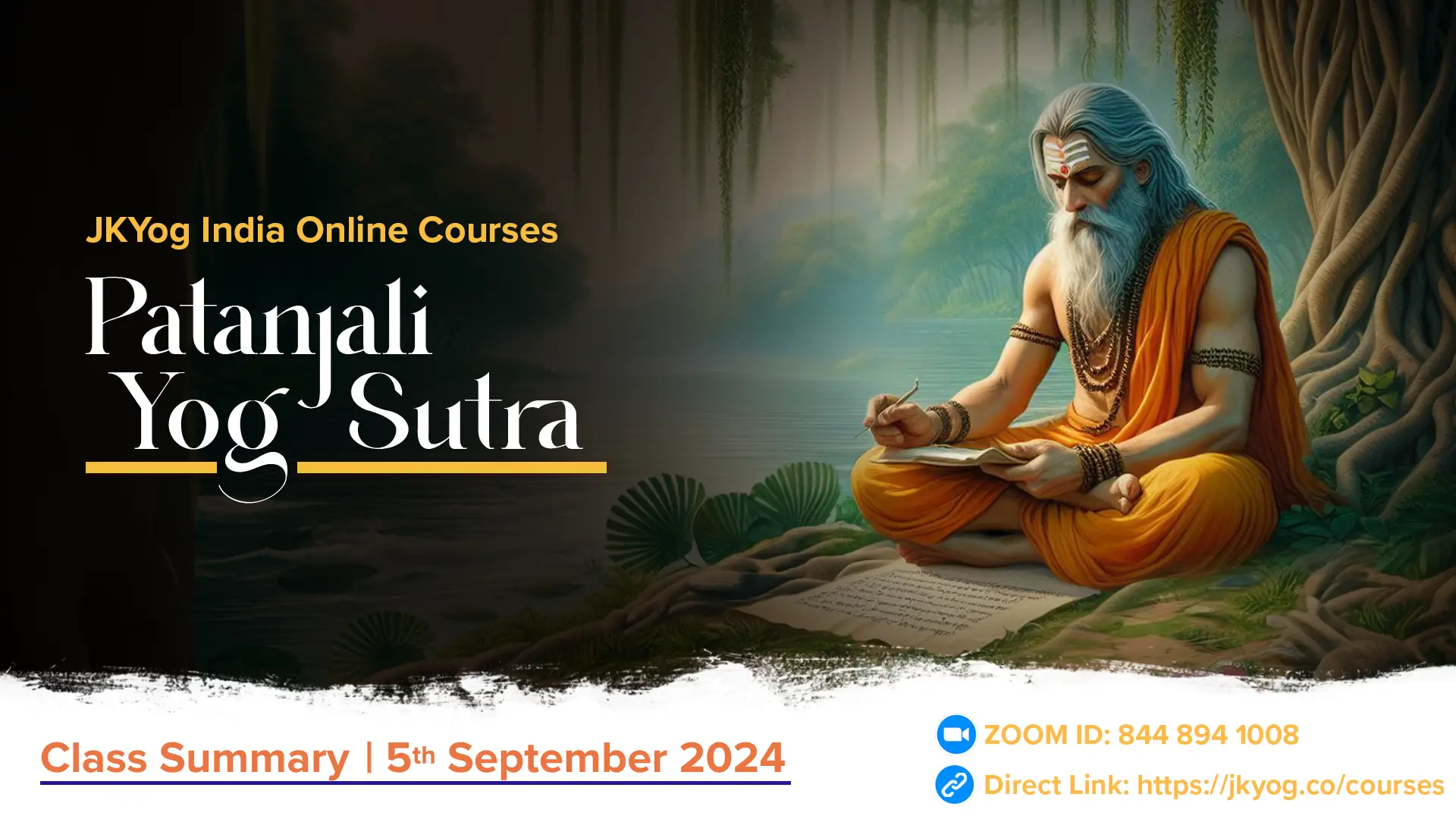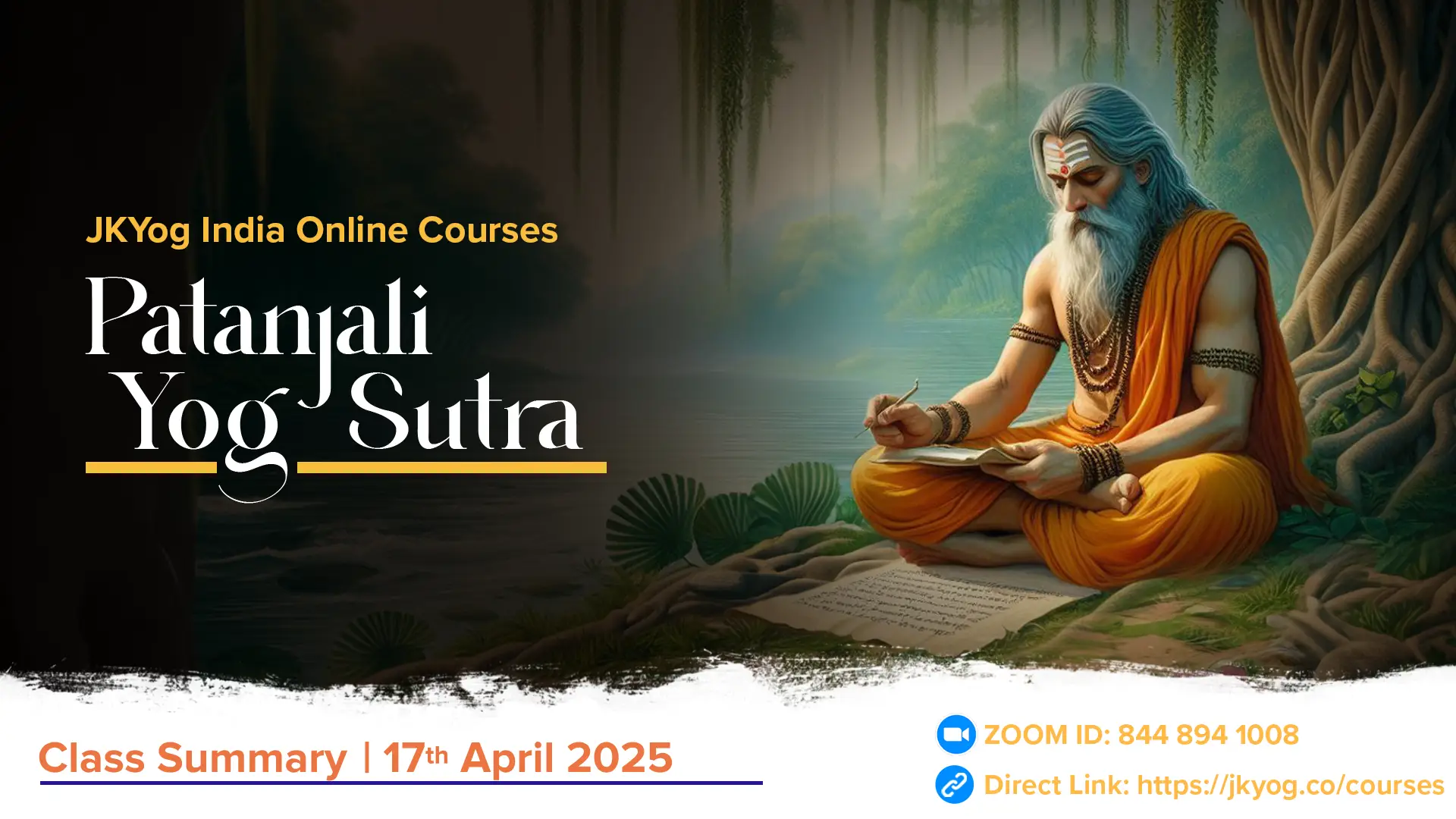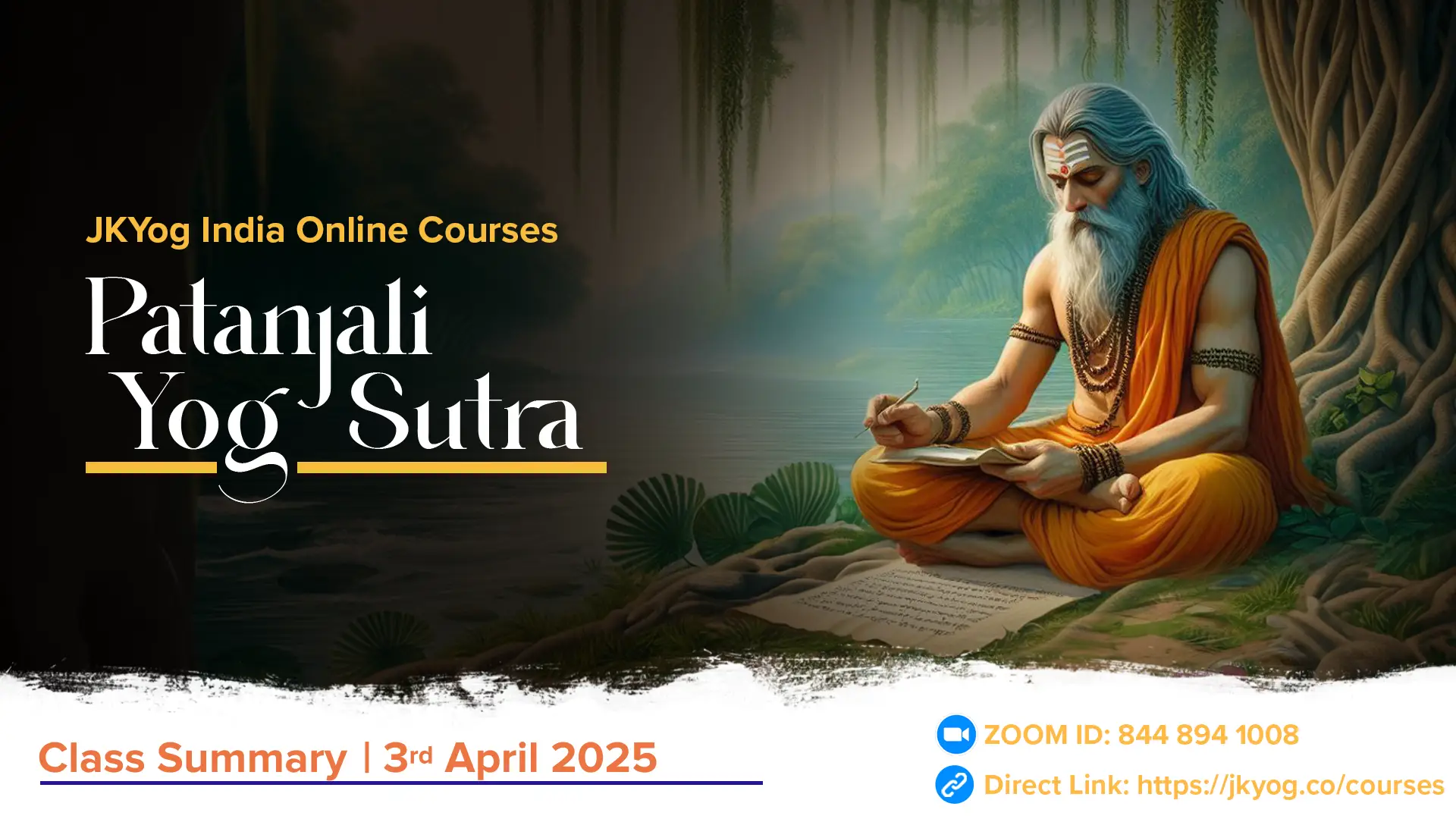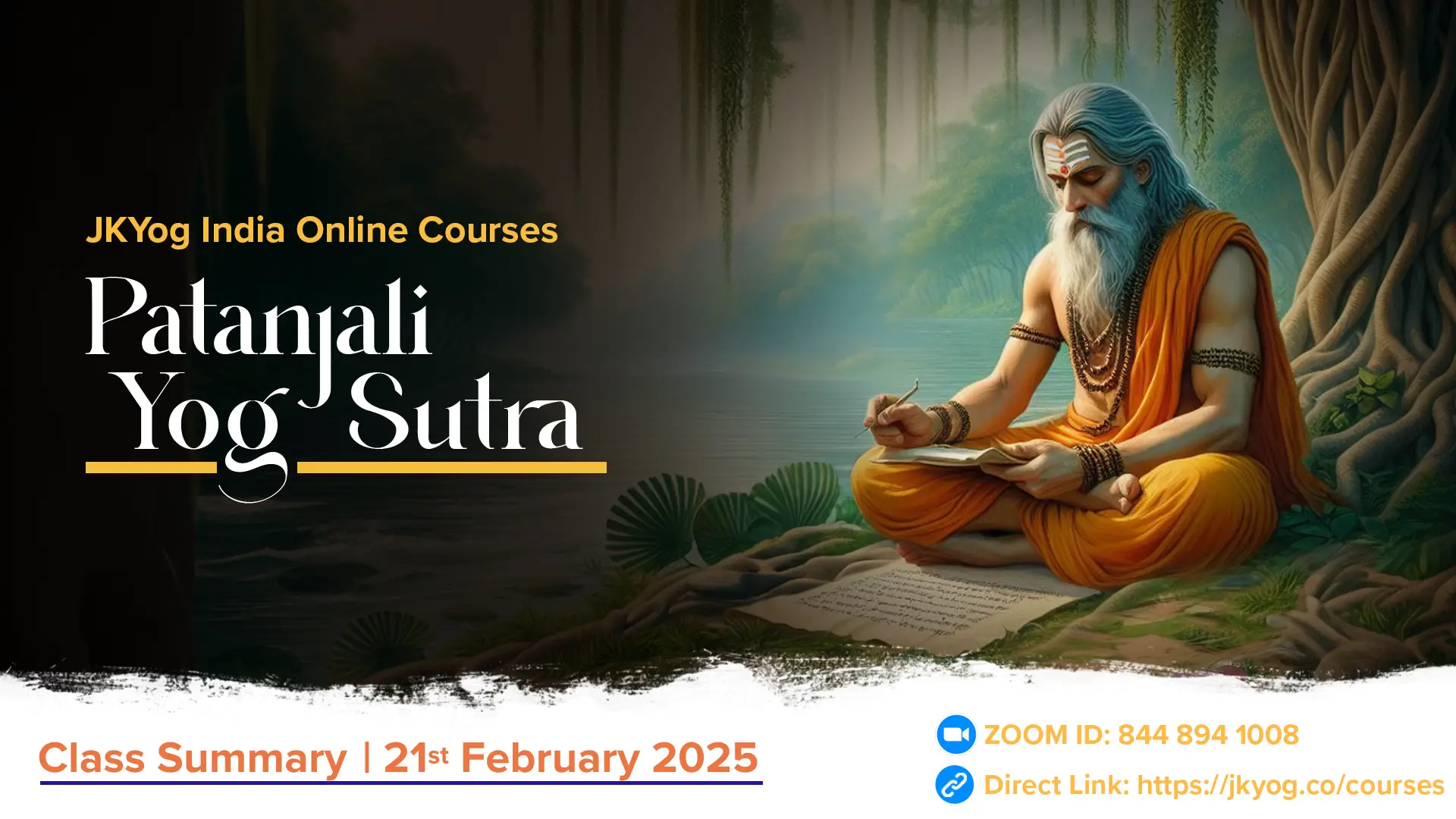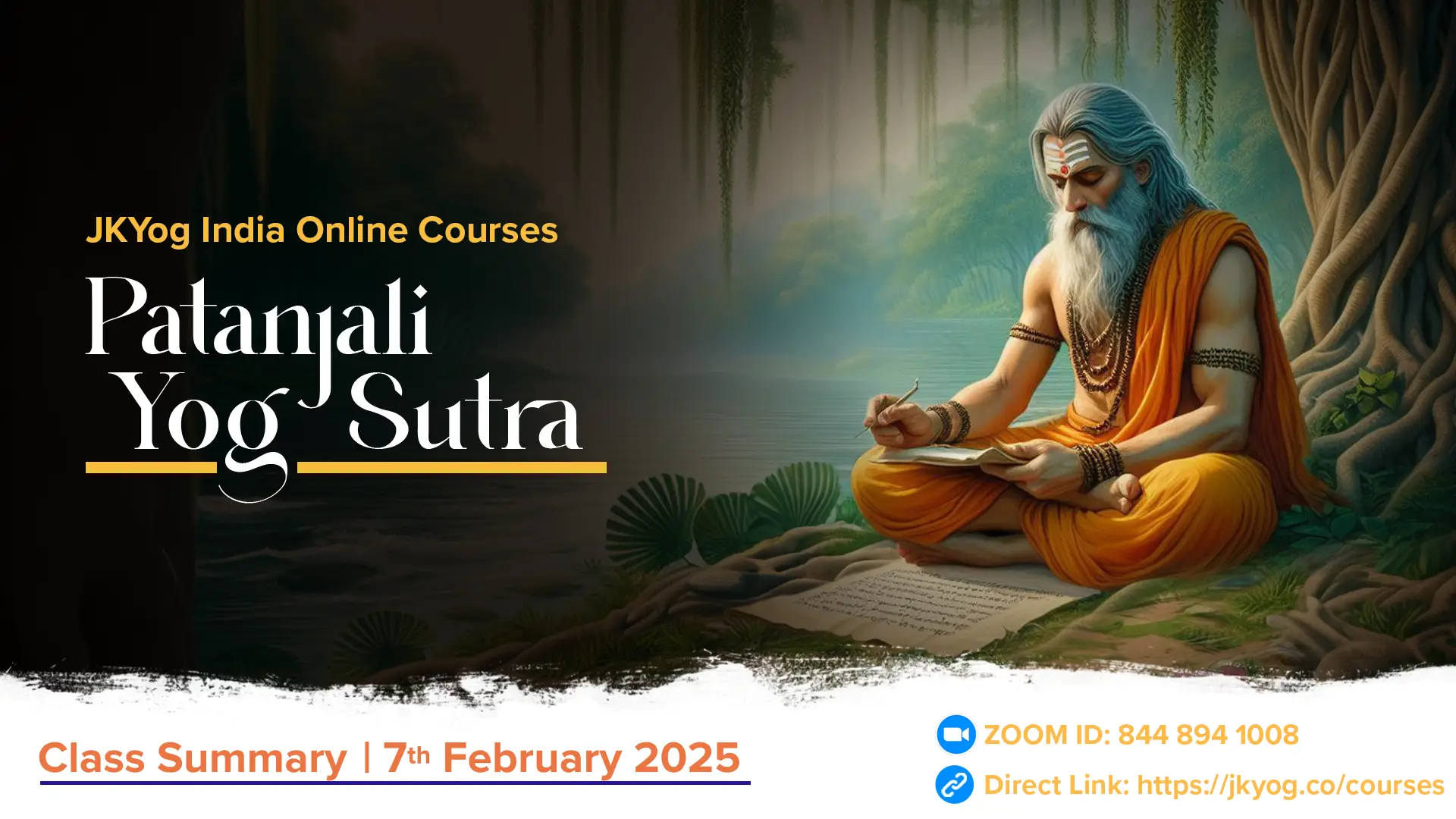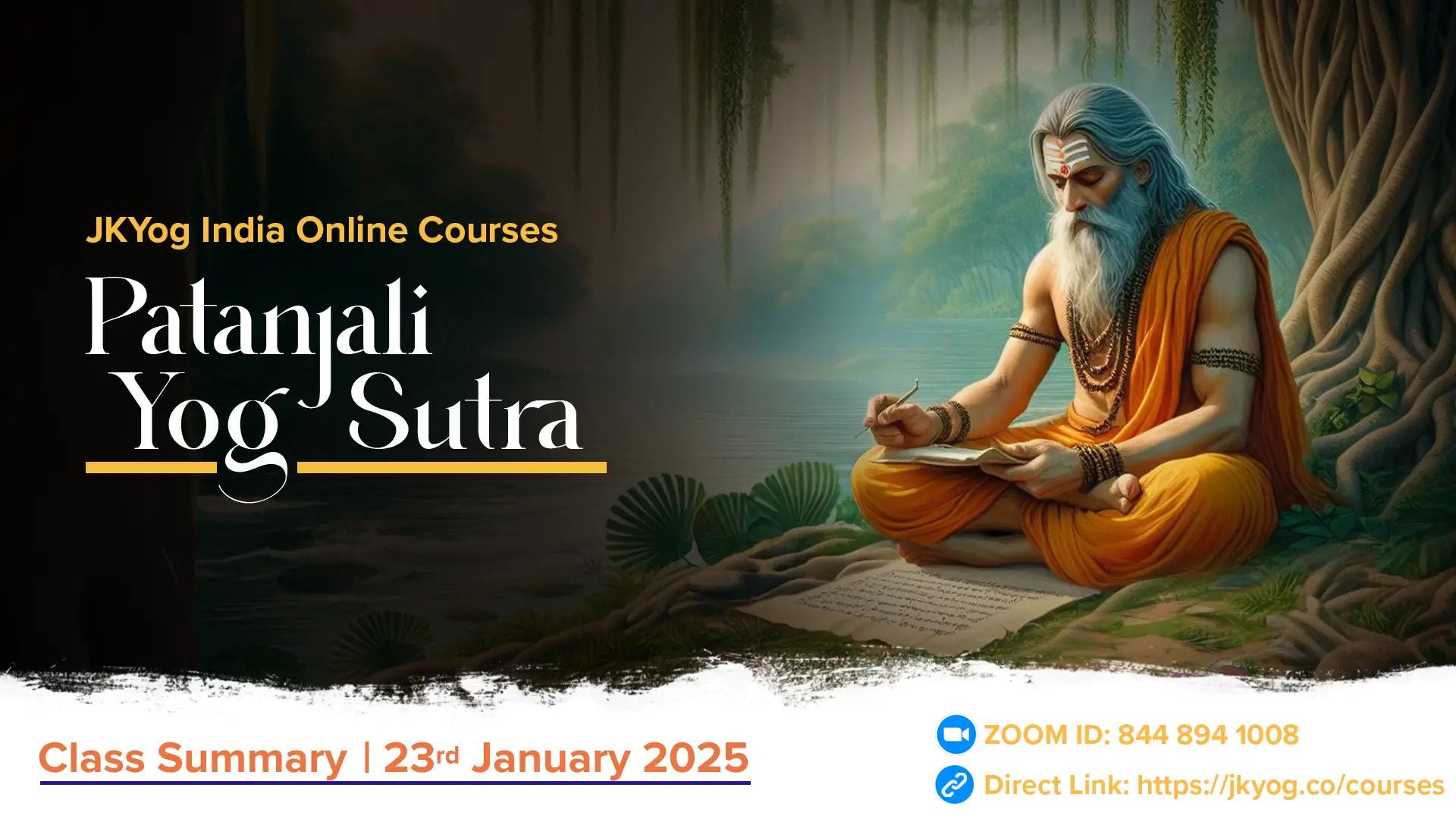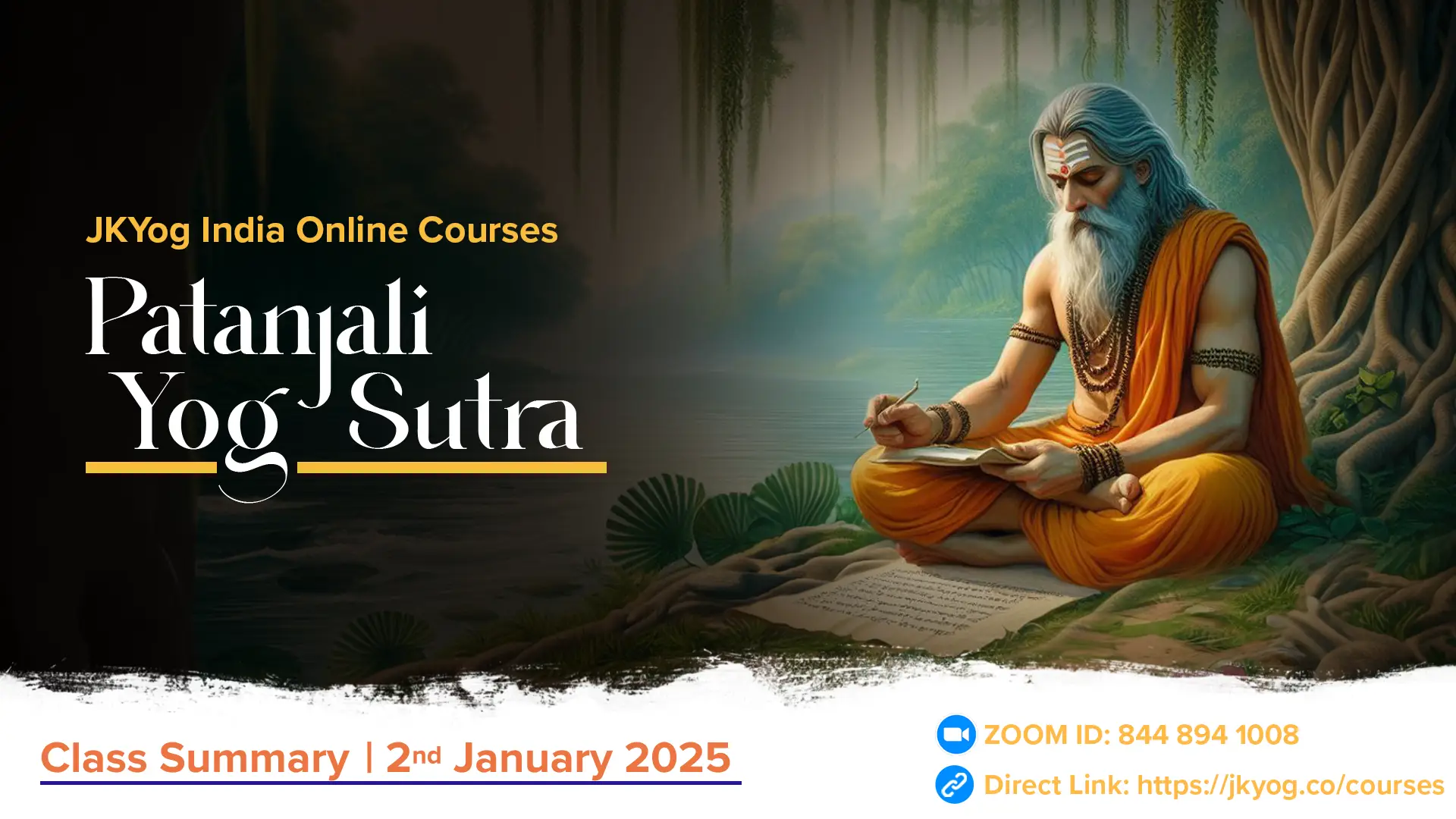तस्मिन्सति श्वासप्रश्वासयोर्गतिविच्छेदः प्राणायामः || 2.49 ||
Tasmin sati śvāsa praśvāsayor gati vicchedaḥ prāṇāyāmaḥ || 2.49 ||
Translation: When it is done (after the completion of the āsanas), controlling the inhalation and the exhalation is prāṇāyāma.
Life span increases
The prāṇāyāma is the gift of Indian legacy to the world. A person, on average, breathes 24,000 times a day. On account of anger, jealousy, and the like, breathing can become faster and it can go up to 30,000 times. By doing so, you have borrowed 6000 breaths of the next day which is one-fourth of a day’s breathings. If a person’s life span is 80 years, when he reaches 60, he will have completed the 80 years of allotted breath intake by faster breathing every day. So, his life ends at 60. By controlling the breath, he would have lived for 80. So prāṇāyāma, which is actually a breath control exercise, is believed to increase the life span of a person.
Quality of life increases
One person may say, I do not want to live long in this world. Let me breathe out as fast as possible and exhaust my life span. This is not correct since that attitude reduces the quality of life considerably and makes our lives all the more miserable. A man of 40 will look like one of 60, jaded and exhausted. But prāṇāyāma purifies the blood and provides quality oxygen to the vital parts of the body, thus contributing to the general health of a person. The quality of life we live increases.
Meditate on Him, unite with Him
There is an indirect reference to the benefits of prāṇāyāma in a verse from the Svetasvata Upaniṣad.
Ksharam pradhanam amritaksharam harah Ksharatmana vishate deva ekah |
Tasyabhidhyanad yojanat tattvabhavat Bhuyash chante vishvamayanivrittih || 1.10
“Matter is perishable, but God is imperishable and immortal. He, the only God, rules over the perishable matter and individual souls. By meditating on him, by uniting with Him, and by becoming one with Him, there is a cessation of all illusion in the end.”
The Bhagavad Gītā gives some practical guidance on prāṇāyāma.
sparshan kritva bahir bahyansh chakshush chaivantare bhruvoh
pranapanau samau kritva nasabhyantara-charinau
(Gita 5.27)
yatendriya-mano-buddhir munir moksha-parayanah
vigatechchha-bhaya-krodho yah sada mukta eva sah
(Gita 5.28)
Meaning: ‘Shutting out all thoughts of external enjoyment, with the gaze fixed on the space between the eye-brows, equalizing the flow of the incoming and outgoing breath in the nostrils, and thus controlling the senses, mind, and intellect, the sage who becomes free from desire and fear, always lives in freedom.’
Liberation from material energy
Commenting on the verses, Swami Mukundanandaji says, “Shree Krishna says that such ascetics shut out thoughts of sense objects by controlling their sight and breath. They focus their gaze between their eyebrows. If the eyes are fully closed, sleep may overtake one; and if they are wide open, they may get distracted by the objects around them. In order to avoid both these defects, the ascetics concentrate their gaze, with eyes half-open, between the eyebrows or the tip of the nose. They also harmonize the prāṇa (outgoing breath) with the apāna (incoming breath), until both become suspended in yogic trance. This yogic process enables the controlling of the senses, mind, and intellect. Such persons make liberation from the material energy as their only goal.”
Pranayama and Bhakti
The concept of prāṇāyāma goes well with the bhakti philosophy. Nārāyaṇa Bhattātri, in his Nārāyaṇīya says,
tāramantaranucintya santaataṁ prāṇavāyumabhigamya nirmalāḥ |
indriyāṇi viṣayādathāpahṛtyāssmahe bhavadupāsanonmukhāḥ || 4.3 ||
“O Lord! By regulating my breath through prāṇāyāma and having purified myself I will continuously chant the Praṇava (Om) mantra mentally. Thus, withdrawing my senses from the sense objects, and being purified, I will prepare myself for meditation on Thee.’
Having discussed the importance of Pranayama on our spiritual, emotional and physical health, let us try to practise it daily and enrich our lives.
Summary: JKYog India Online Class- Patanjali Yog Sutra [English]- 05.09.2024

